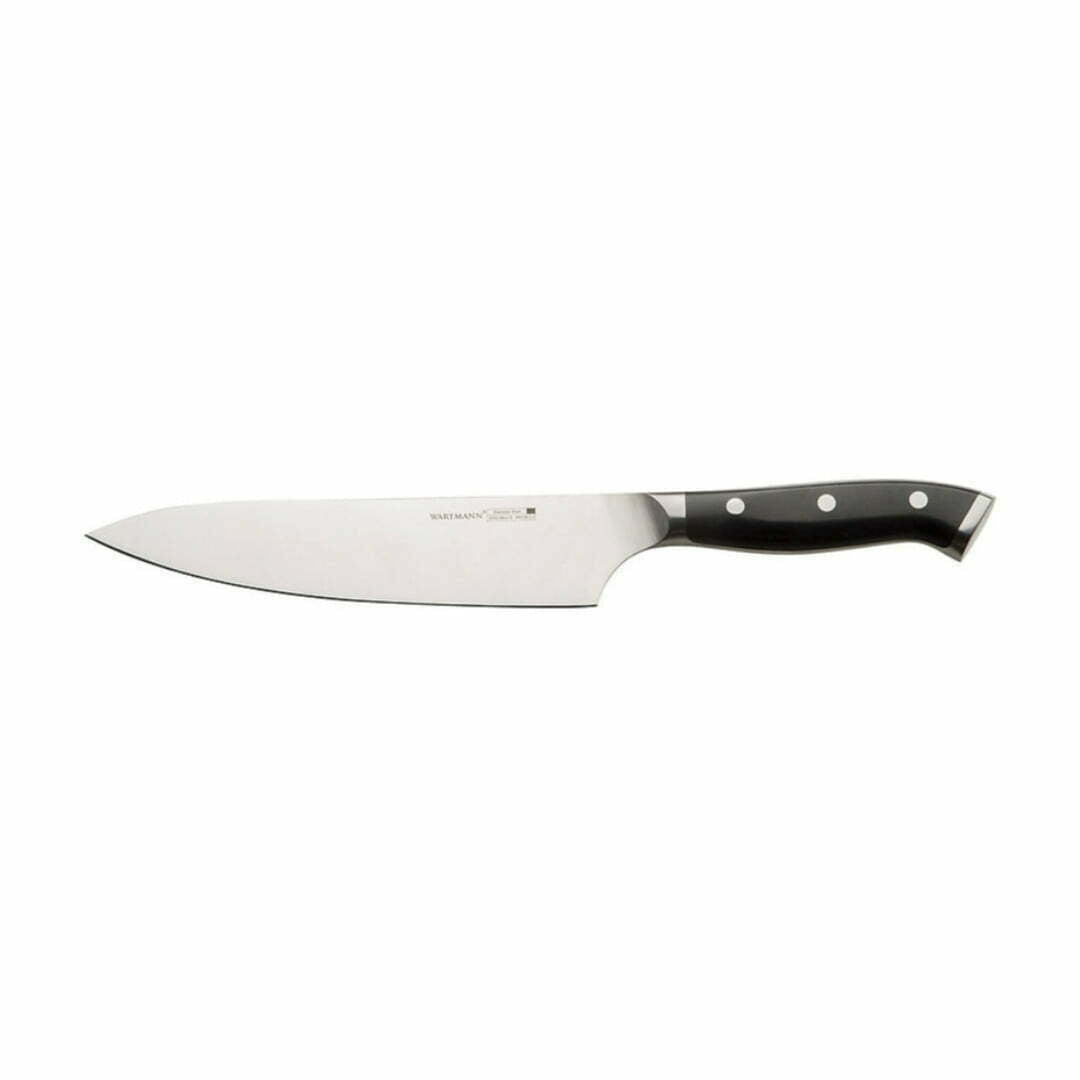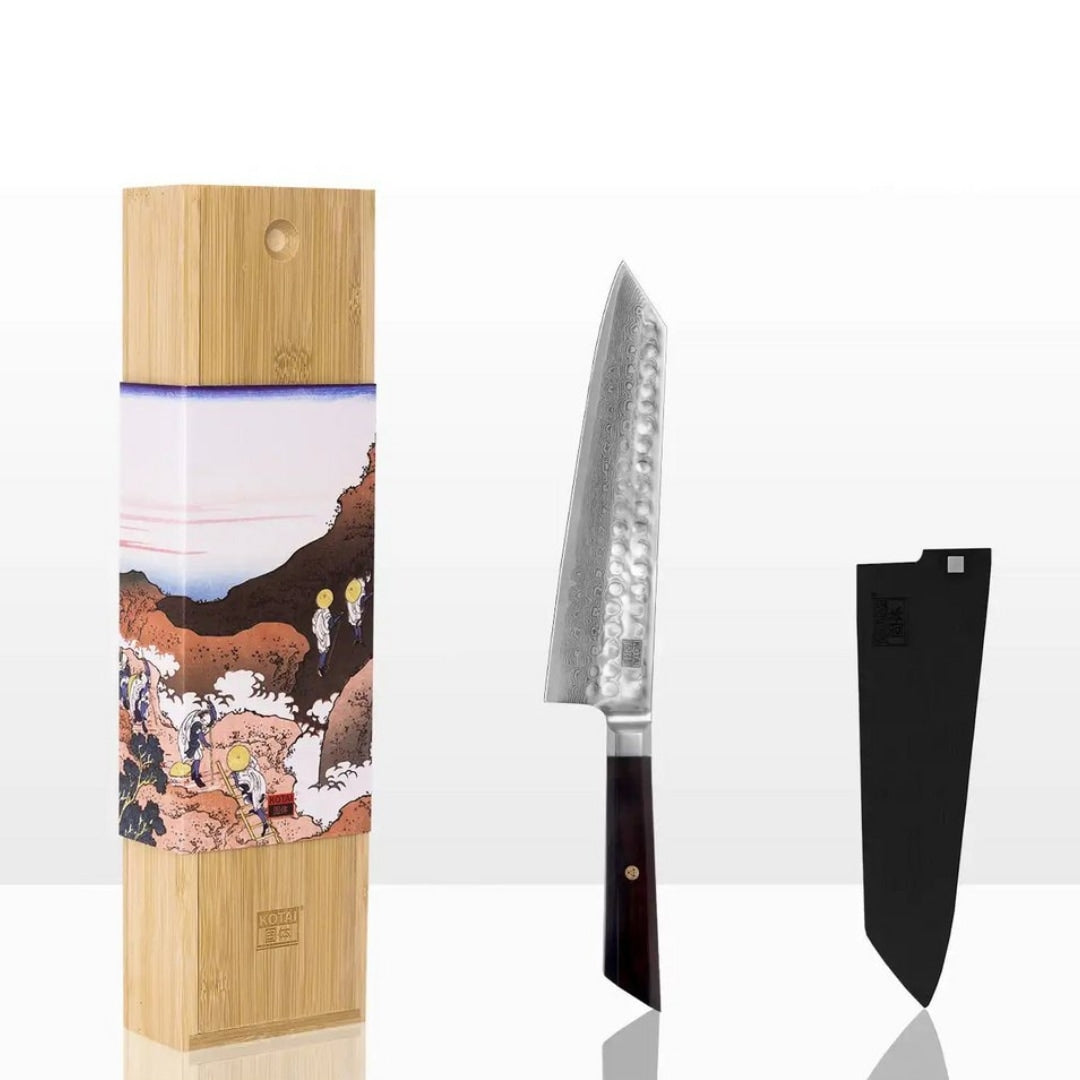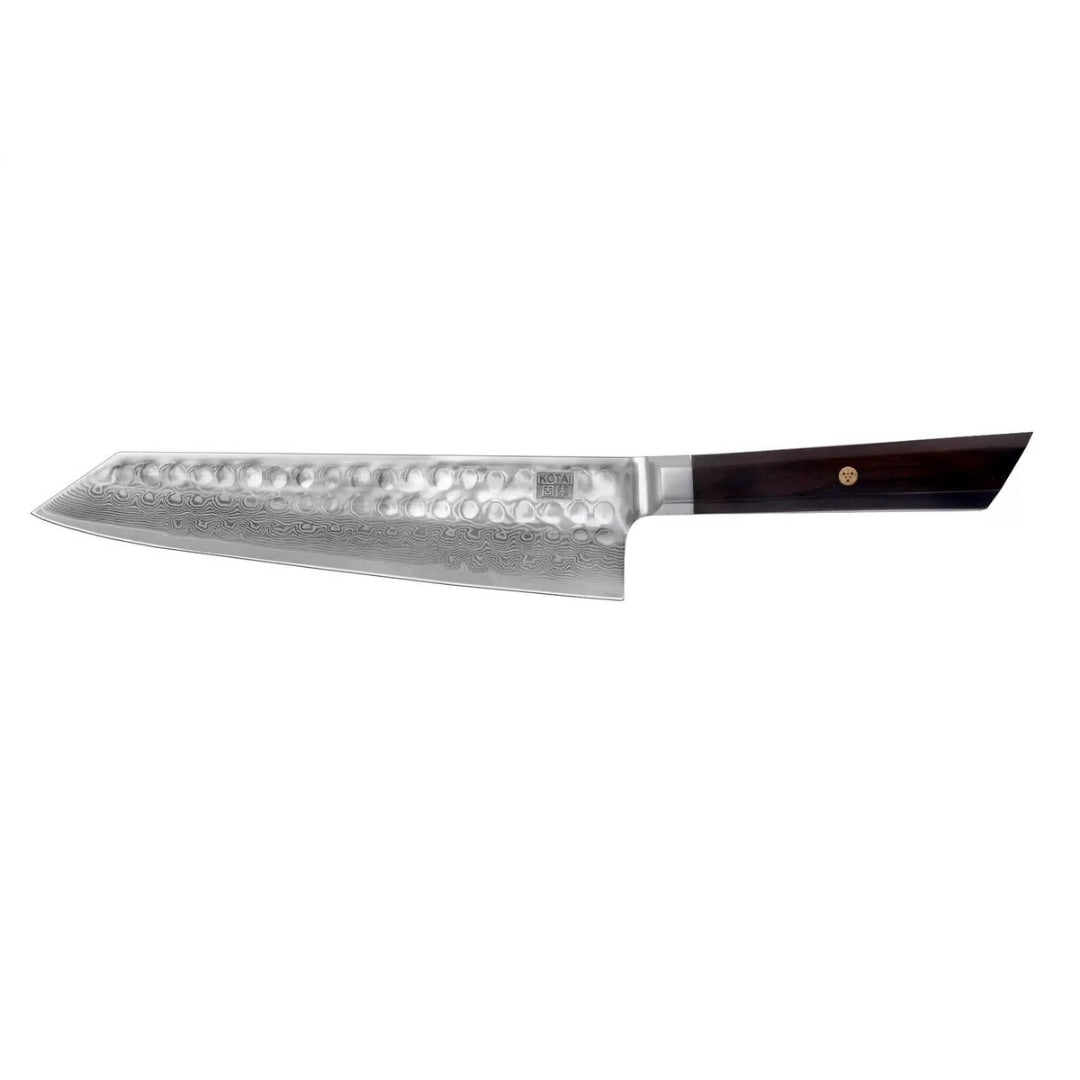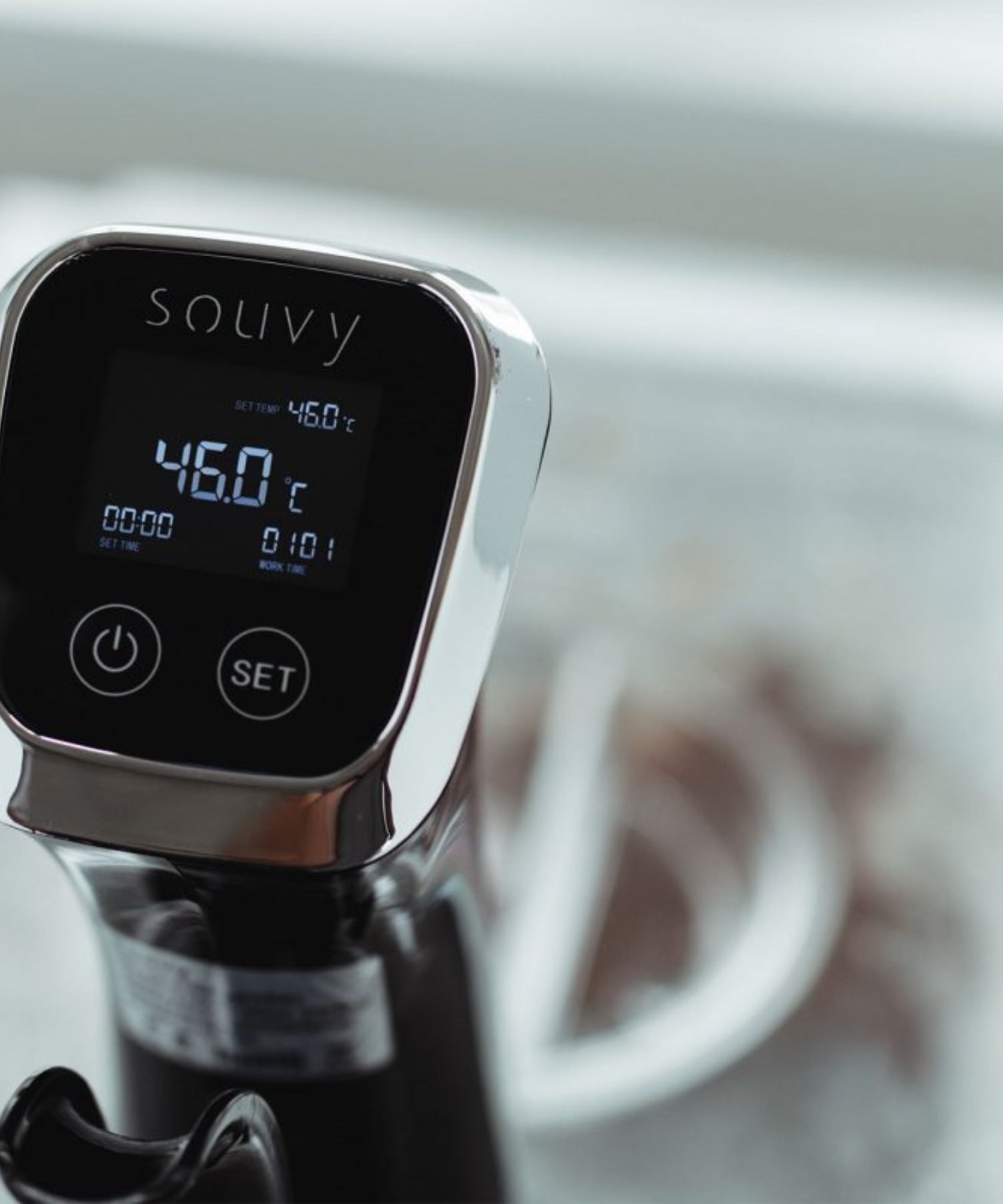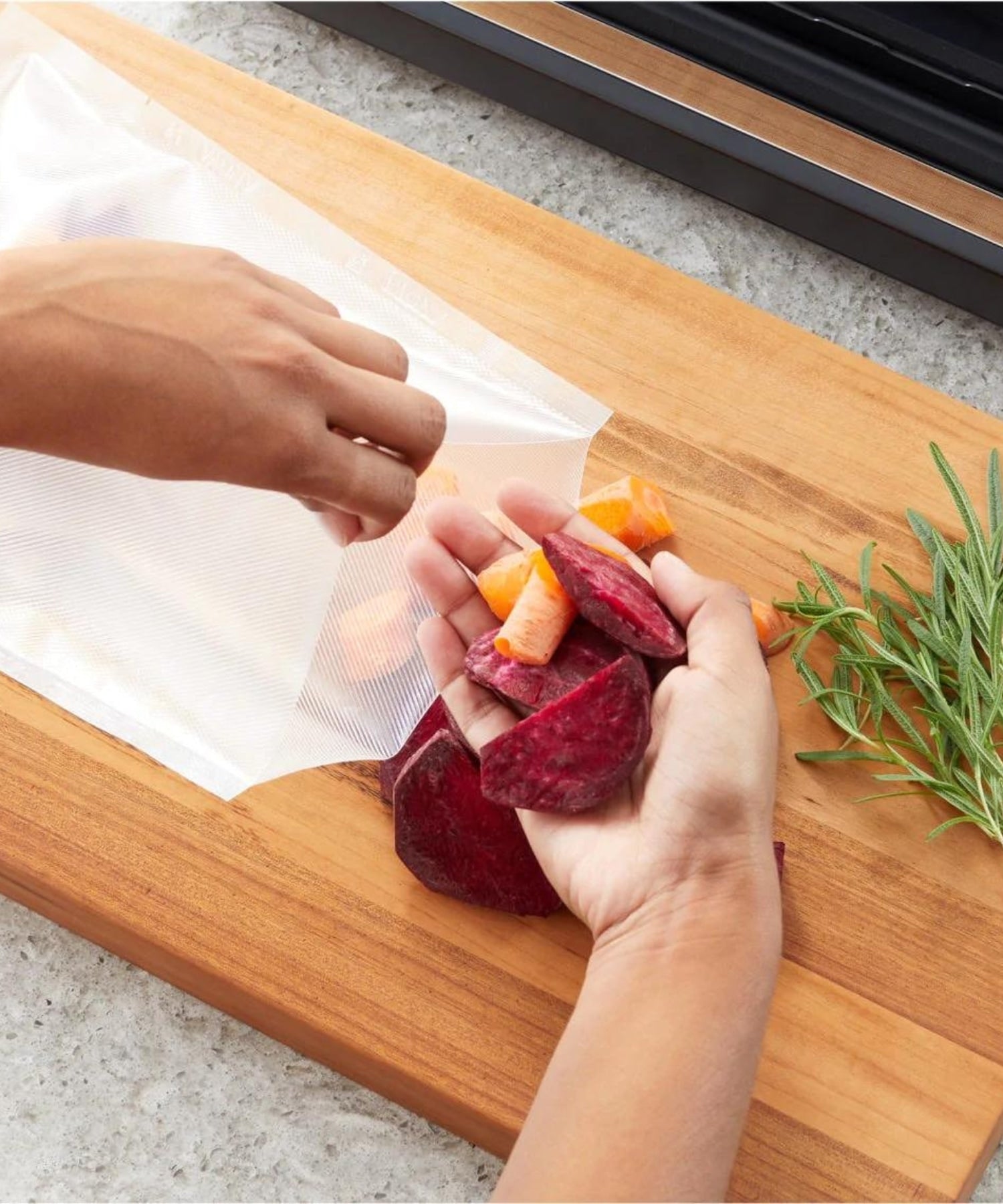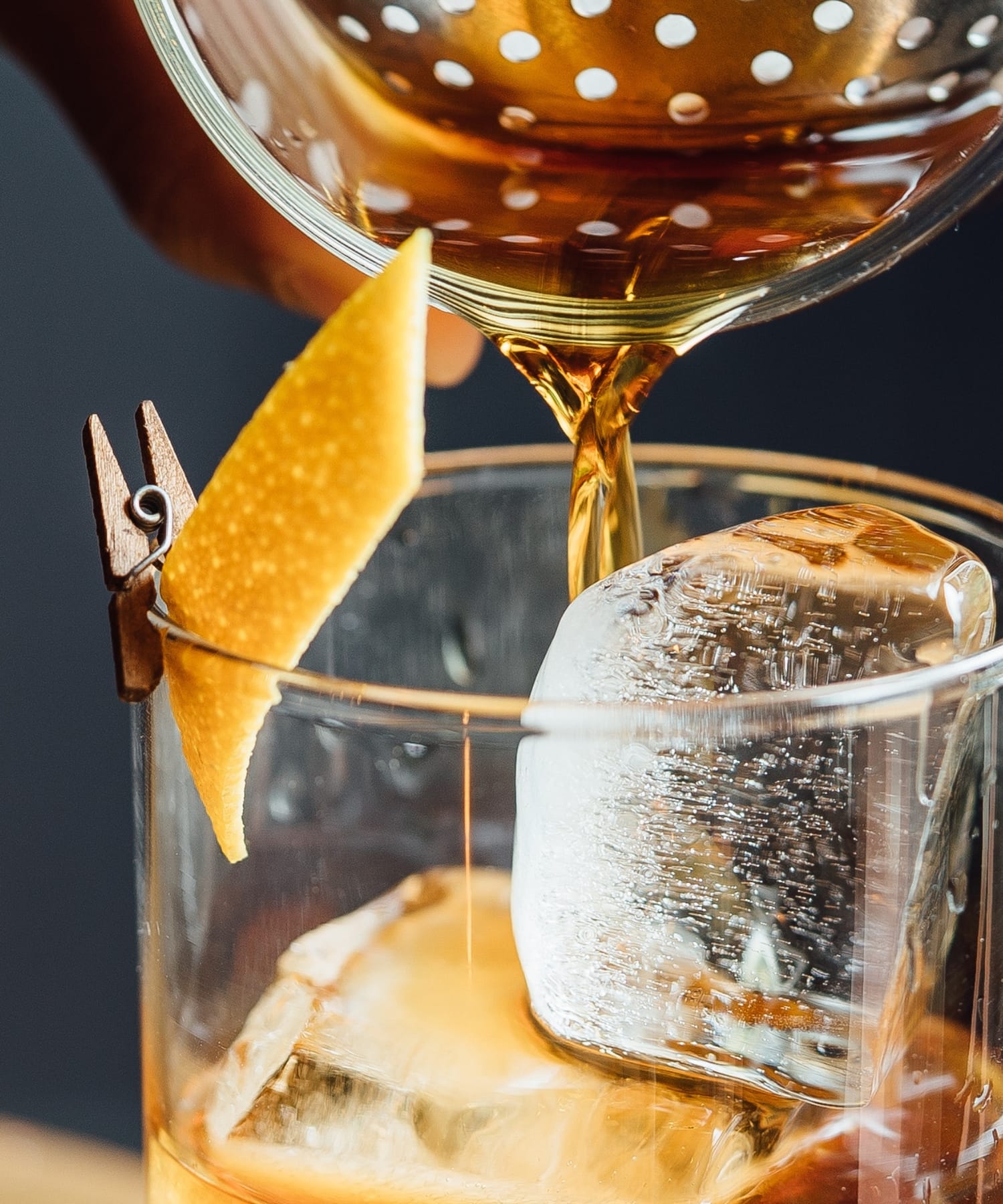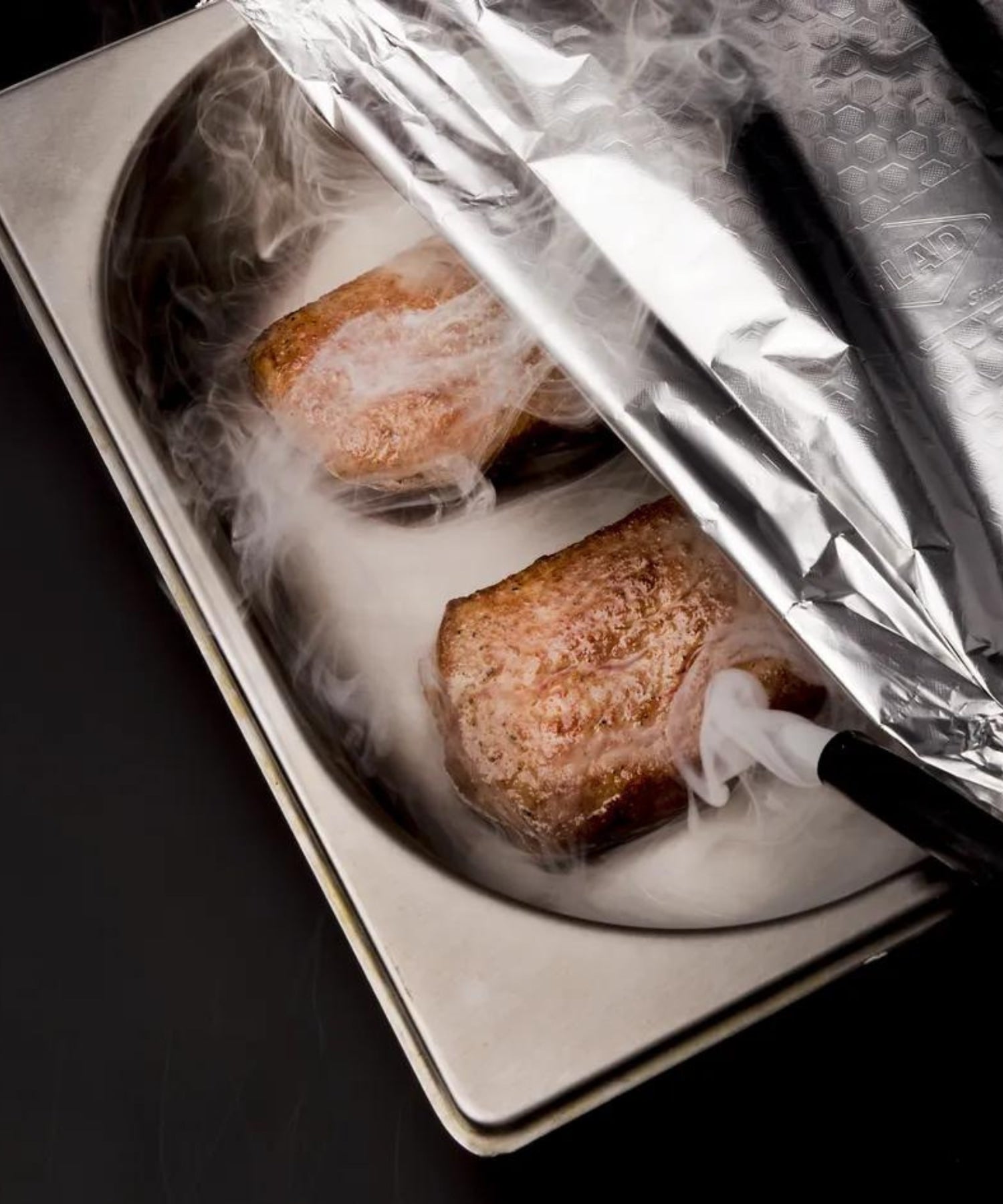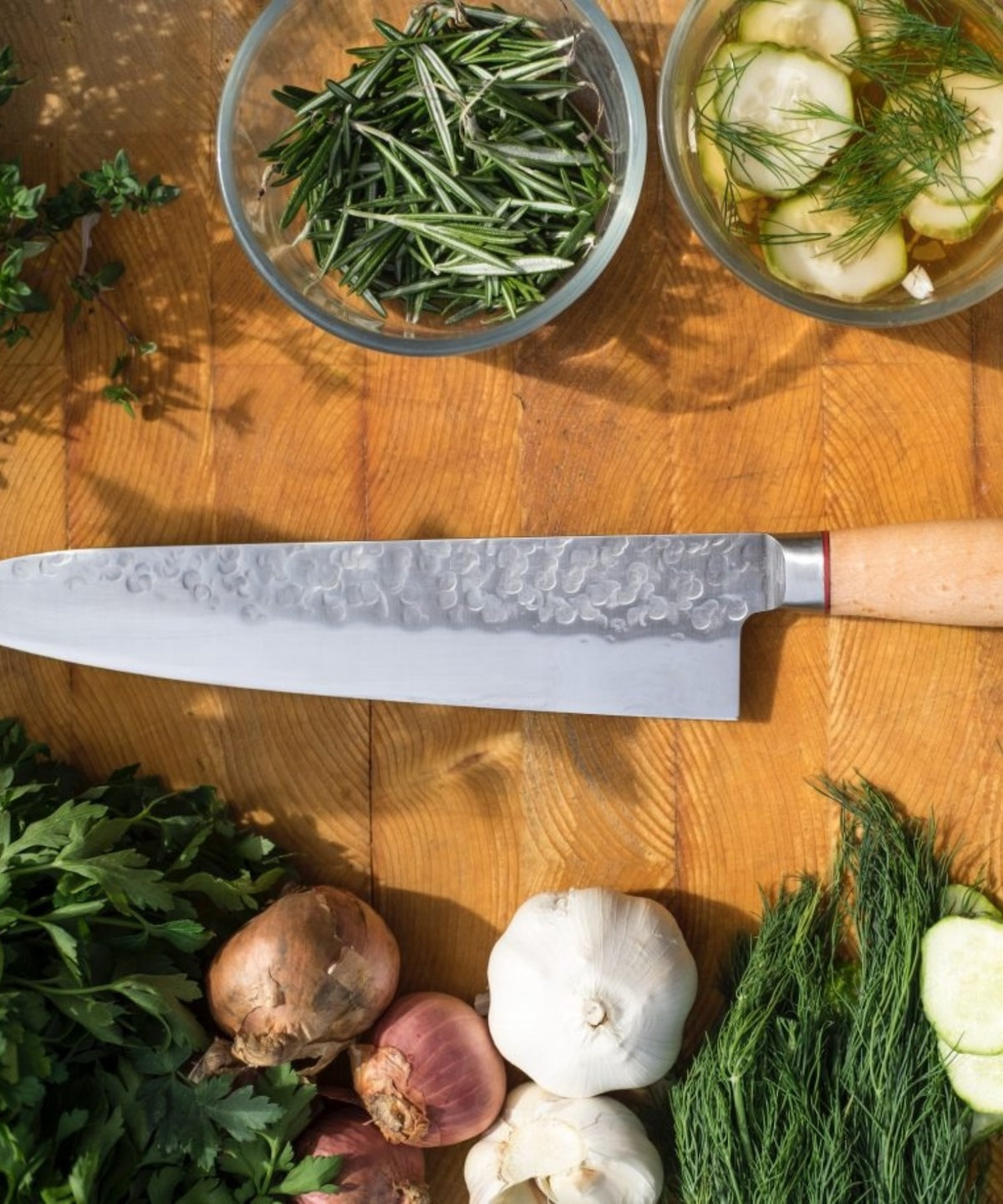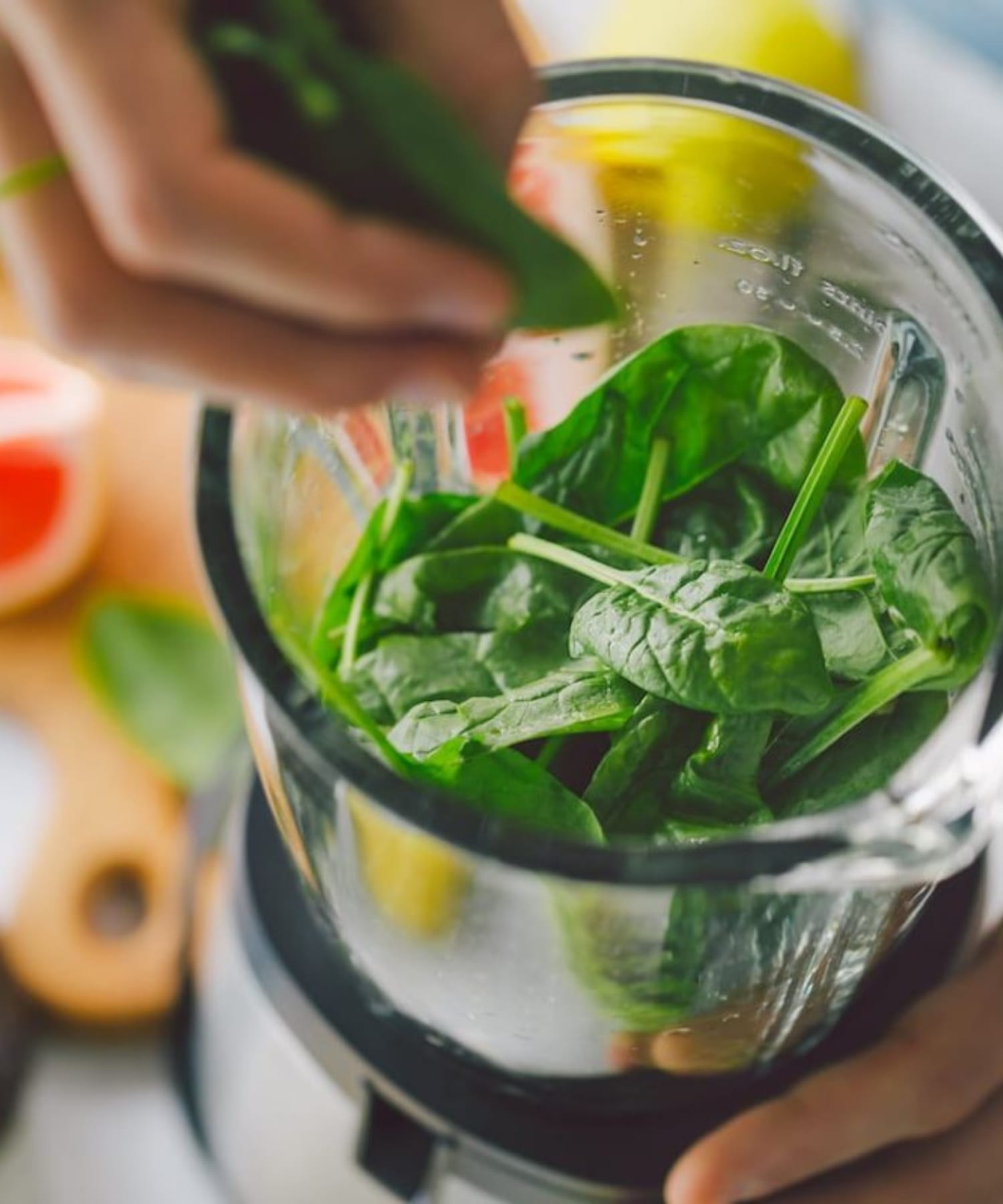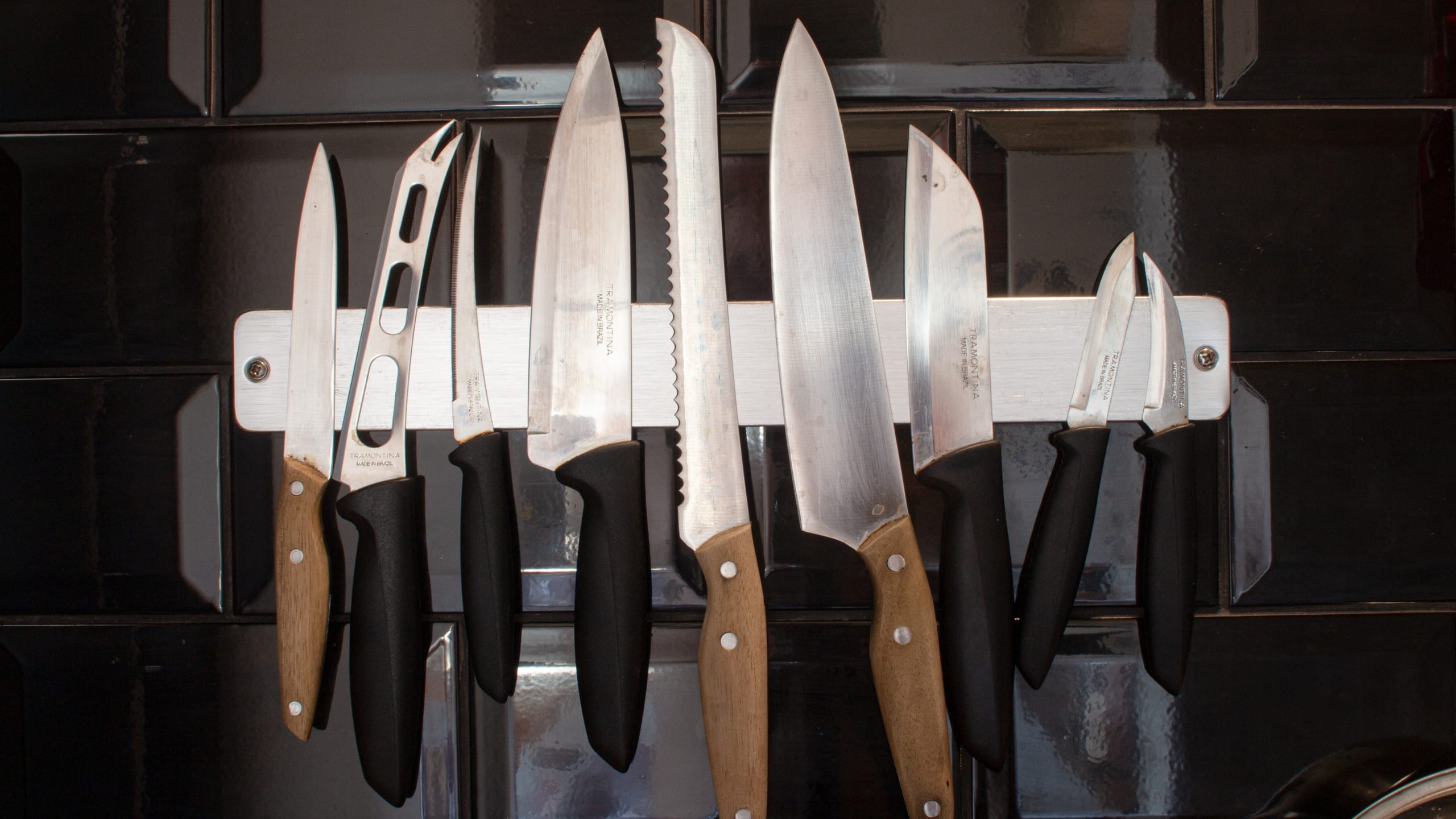
Chef's knives
A good chef's knife is indispensable if cooking is your passion!
Filters
2 products
Chef's knives are the most important kitchen tool for every hobby chef!
As a hobby chef or professional in the kitchen, you know that good knives are indispensable. The chef's knife is the most important and versatile knife in your kitchen arsenal. It is suitable for cutting vegetables, fruits, meat, fish and more. But what actually makes a good chef's knife good? Which features are important and what should you pay attention to when buying a chef's knife? In this guide we discuss everything you need to know about chef's knives.
Why is a good chef's knife important?
A good chef's knife is not only indispensable in the kitchen, but also very important. Using a sharp knife not only provides a better cutting experience, but it also makes cutting safer. With a blunt knife you tend to use more force, which can lead to accidents. In addition, a good chef's knife is more efficient, because you can work faster and have less chance of tired hands.
Which features are important?
There are a number of features you should pay attention to when choosing a good chef's knife. First of all, the knife should fit comfortably in your hand. The handle should fit comfortably in the hand and the knife should not be too heavy. In addition, the knife must have a sharp cutting edge.
When choosing a chef's knife, there are a number of important aspects to consider, including the shape, size, material, sharpness and handle.
Shape of the chef's knife
There are two common types of chef's knives: European and Japanese style. European style chef's knives generally have a rounder shape, while Japanese style knives often have a more angular design. It is important to consider both styles and determine which shape best suits your needs.
Size of the chef's knife
Chef's knives are available in different sizes, ranging from small 6-inch knives to large 12-inch knives. In general, the larger the knife, the more control you have when cutting large pieces of meat or vegetables, but it can also be heavier to handle. Choose a size that best suits your hand size and the tasks you plan to perform.
Material of the chef's knife
Chef's knives can be made from different materials, such as stainless steel, carbon steel and ceramic. Stainless steel is durable and easy to maintain, but it is generally not as sharp as other materials. Carbon steel is often sharper and retains its edge longer, but it can rust and requires more maintenance. Ceramic knives are very sharp and lightweight, but they are generally less durable and more prone to breakage.
Sharpness of the chef's knife
The sharpness of a knife is critical to achieving clean and precise cuts. Choose a knife that is sharp enough to cut through meat, vegetables and fruit without tearing or pulling.
Handle
A good handle is essential to use a chef's knife comfortably and safely. Choose a knife with a handle that fits well in your hand and provides enough grip to hold the knife securely.
Frequently Asked Questions!
We have answered frequently asked questions about chef's knives here for you. We would like to help you with your questions as quickly as possible. If you cannot find your question here, please feel free to contact us. We are here to help you!
What is the difference between a chef's knife and a Santoku knife?
The main difference between a chef's knife and a Santoku knife is the shape of the blade. A chef's knife has a rounder blade, while a Santoku knife has a straighter blade.
How often should I sharpen my chef's knife?
This depends on how often you use the knife and what exactly you do with it. In general, it is recommended to sharpen your chef's knife every 3 to 6 months, depending on use.
What is the best material for a chef's knife?
The best material for a chef's knife depends on personal preference and budget. Stainless steel and carbon steel are commonly used materials, each with their own advantages and disadvantages.
Can I put my chef's knife in the dishwasher?
It is generally not recommended to put chef's knives in the dishwasher. The high temperatures and abrasive movements in the dishwasher can damage or dull the blade.
What should I pay attention to when choosing a chef's knife?
When choosing a chef's knife, you should consider the material of the blade, the size and shape of the blade, the weight and balance of the knife, and the comfort of the handle. It is important to choose a knife that fits well in your hand and is suitable for the tasks you want to perform with it.
Reliable shipping
We work with PostNL and DPD to ship the products.
Customer service
Do you have questions? Send us an email. We always try to respond within 24 hours.
Secure payment
We offer secure payment options to optimally protect your personal data.
Newsletter
Sign up for our newsletter and receive a welcome discount!
